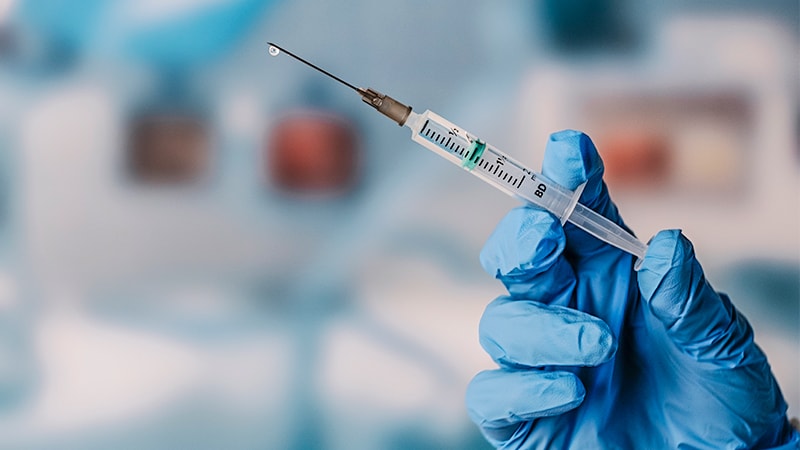Fitness
No HIV Infections After Twice-a-Year PREP

Lenacapavir, a twice-yearly injectable HIV-1 capsid inhibitor, has shown 100% efficacy in preventing HIV in women at a high risk for infection, according to an interim analysis of the phase 3 PURPOSE 1 trial.
The results were so promising that the independent data monitoring committee recommended that Gilead Sciences stop the blinded phase of the trial and offer open-label lenacapavir to all participants.
The results were both unexpected and exciting. “I’ve been in the HIV field for a really long time, and there’s no other phase 3 PREP trial that found zero infections,” said Moupali Das, MD, PhD, executive director of clinical development at Gilead Sciences, Foster City, California.
PURPOSE 1 is evaluating the safety and efficacy of two regimens — twice-yearly subcutaneous lenacapavir for preexposure prophylaxis and once-daily oral Descovy (emtricitabine 200 mg and tenofovir alafenamide 25 mg) — in women and girls aged 16-25 years. The two drugs are being compared with the standard once-daily oral Truvada (emtricitabine 200 mg and tenofovir disoproxil fumarate 300 mg).
There were no cases of HIV infection among the more than 2000 women in the lenacapavir group; in contrast, the incidence of HIV in the Descovy group was 2.02 per 100 person-years and in the Truvada group was 1.69 per 100 person-years.
The background incidence of HIV, one of the primary endpoints of the trial, was 2.41 per 100 person-years with lenacapavir. All the drugs were shown to be safe and well tolerated, and the full interim data from the trial will be released at an upcoming conference, according to Das.
No New Cases
The medical community is “thrilled” with the results so far, said Monica Gandhi, MD, director of the UCSF-Gladstone Center for AIDS Research. “We have to wait for the full data, but so far, it has been 100% effective and far superior to other treatments.”
Gandhi said she is waiting to see more details on side effects and tolerability, as well as discontinuation rates in the trial and the reasons people dropped out. For example, lenacapavir tends to cause nodules to form under the skin, which are the depots from which the drug is released over the course of 6 months. Gandhi said she is interested in whether any participants found them bothersome enough to discontinue the treatment.
The global HIV epidemic is still ongoing, with 1.3 million new infections in 2022, and existing oral PREP options, and even the long-acting injectable cabotegravir, have so far failed to make as much of a dent in infection rates as hoped, said Gandhi. “We’ve been waiting for another option.”
The twice-yearly lenacapavir shot is easy and convenient to administer compared with oral PREP. Many people — especially younger individuals such as those enrolled in PURPOSE 1 — find it difficult to remember to take the pills every day.
A Discrete Option
Many participants in the trial said that they were uncomfortable with the stigma that can be attached to HIV PREP. They did not want people to see the pill bottle in their house or hear it rattling in their purse. So an injection given just twice a year in a doctor’s office is attractive.
“This is a discrete option. People were very excited about the privacy and not having to take daily pills,” said Das. “PREP only works if you take it.”
Better adherence to the treatment regimen is likely one reason that lenacapavir outperformed oral PREP. But lenacapavir also has a unique mechanism of action as a multistage viral capsid inhibitor, Das said. It targets the capsid both before and after the virus integrates into the nucleus, which could be another reason for its potency.
Although the results are encouraging, there is still some concern about how accessible the drug will be, especially in low- and middle-income countries where the burden of HIV is the highest. “No one has any clue on how Gilead plans to make this accessible,” said Gandhi.
Access Issues
The company has not signed up for the Medicines Patent Pool (MPP) to allow companies to manufacture generic formulations of lenacapavir, which Gandhi said is the traditional route to provide cheaper alternatives in poorer countries. The “disastrous” roll out of injectable cabotegravir, which is still not widely available in lower-income countries, is a worrying precedent, she said.
Gilead Sciences confirmed that all 5300 participants in the PURPOSE 1 study will have the option to continue receiving lenacapavir until the drug is generally available in their country. The company has committed to ensuring a dedicated Gilead Sciences supply in the countries where the need is the greatest until voluntary licensing partners are able to supply high-quality, low-cost versions of lenacapavir.
And rather than going through the third-party MPP, Gilead Sciences is negotiating a voluntary licensing program directly with other partners to supply generic versions of the drug in poorer countries.
Lenacapavir is already approved for the treatment of multidrug-resistant HIV but is not yet approved for HIV prevention. A sister trial, PURPOSE 2, is ongoing and is testing lenacapavir in men who have sex with men and in transgender men, transgender women, and nonbinary individuals who have sex with partners assigned male at birth. Should those results, expected by the end of 2024 or early 2025, be positive, the company will move forward with regulatory filings for lenacapavir PREP.
Three other trials are also ongoing. PURPOSE 3 and PURPOSE 4 are smaller US-based studies of women and people who inject drugs, and PURPOSE 5 is enrolling people at a high risk for HIV in France and the United Kingdom to provide European data for European regulators.










